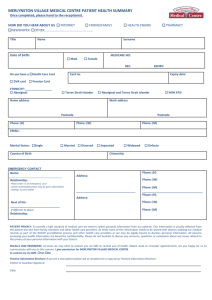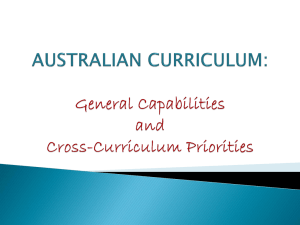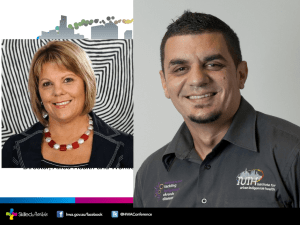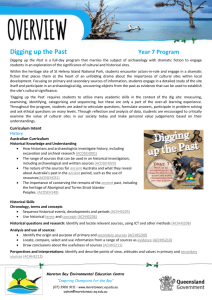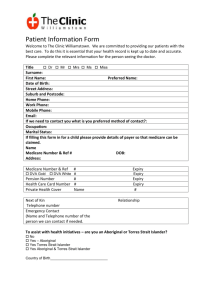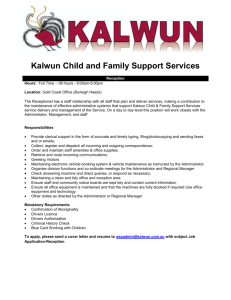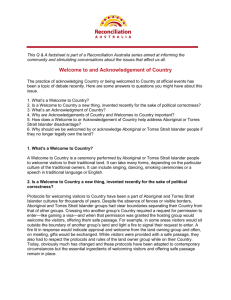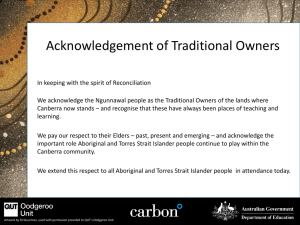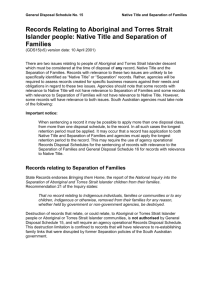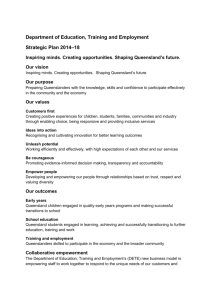AV 3 transcript - QCOSS Community Door eTraining
advertisement
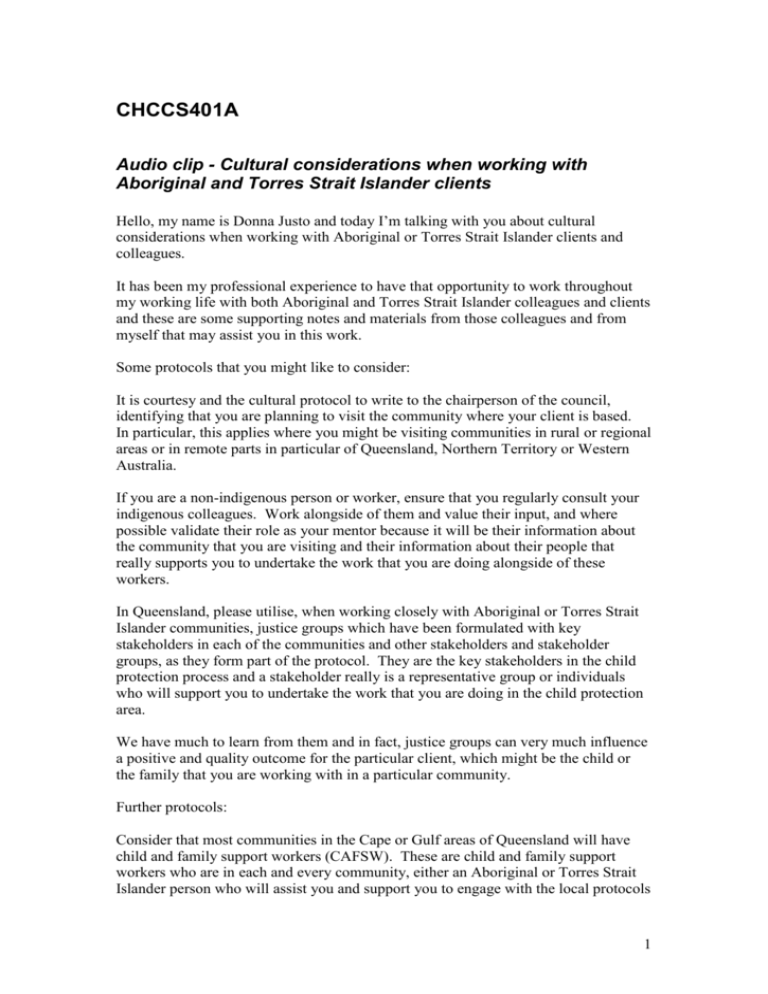
CHCCS401A Audio clip - Cultural considerations when working with Aboriginal and Torres Strait Islander clients Hello, my name is Donna Justo and today I’m talking with you about cultural considerations when working with Aboriginal or Torres Strait Islander clients and colleagues. It has been my professional experience to have that opportunity to work throughout my working life with both Aboriginal and Torres Strait Islander colleagues and clients and these are some supporting notes and materials from those colleagues and from myself that may assist you in this work. Some protocols that you might like to consider: It is courtesy and the cultural protocol to write to the chairperson of the council, identifying that you are planning to visit the community where your client is based. In particular, this applies where you might be visiting communities in rural or regional areas or in remote parts in particular of Queensland, Northern Territory or Western Australia. If you are a non-indigenous person or worker, ensure that you regularly consult your indigenous colleagues. Work alongside of them and value their input, and where possible validate their role as your mentor because it will be their information about the community that you are visiting and their information about their people that really supports you to undertake the work that you are doing alongside of these workers. In Queensland, please utilise, when working closely with Aboriginal or Torres Strait Islander communities, justice groups which have been formulated with key stakeholders in each of the communities and other stakeholders and stakeholder groups, as they form part of the protocol. They are the key stakeholders in the child protection process and a stakeholder really is a representative group or individuals who will support you to undertake the work that you are doing in the child protection area. We have much to learn from them and in fact, justice groups can very much influence a positive and quality outcome for the particular client, which might be the child or the family that you are working with in a particular community. Further protocols: Consider that most communities in the Cape or Gulf areas of Queensland will have child and family support workers (CAFSW). These are child and family support workers who are in each and every community, either an Aboriginal or Torres Strait Islander person who will assist you and support you to engage with the local protocols 1 and appropriate local protocols in that community. Many will very much be keen to talk with you about their own stories, their own family culture and history and to share that with you. Child and family support workers are highly skilled and offer valuable training and mentoring to you in your child protection capacity. An understanding too of the impacts of colonisation in Australia and the impacts of the stolen generation will greatly enhance your understanding of the lived experience of Aboriginal and Torres Strait Islander people in Australia. Spending time in communities across the Cape and Gulf or in the south will support and enhance your understanding of the lived experience of your client group. As an example, how far it is in distance to travel to that community. Perhaps you can only access it by plane, by ferry. What it costs to live in that community. What the housing’s like. The day-to-day struggles – for an example, overcrowding. The distance to medical care and support. These are just some of the many issues that people in rural and remote areas struggle with. The key skills that you require: Good communication techniques Engaging with respectful practices Building and developing trust built on proven track record of cultural considerations on your part Ability to acknowledge the traditional owners in a formal and respectful manner – not tokenistic So, that really is about acknowledging the fact that the traditional owners of our land, the Aboriginal or Torres Strait Islander people, are in fact the traditional owners or our land and have been wonderful custodians for this very beautiful land that we live off. Thank you. 2

